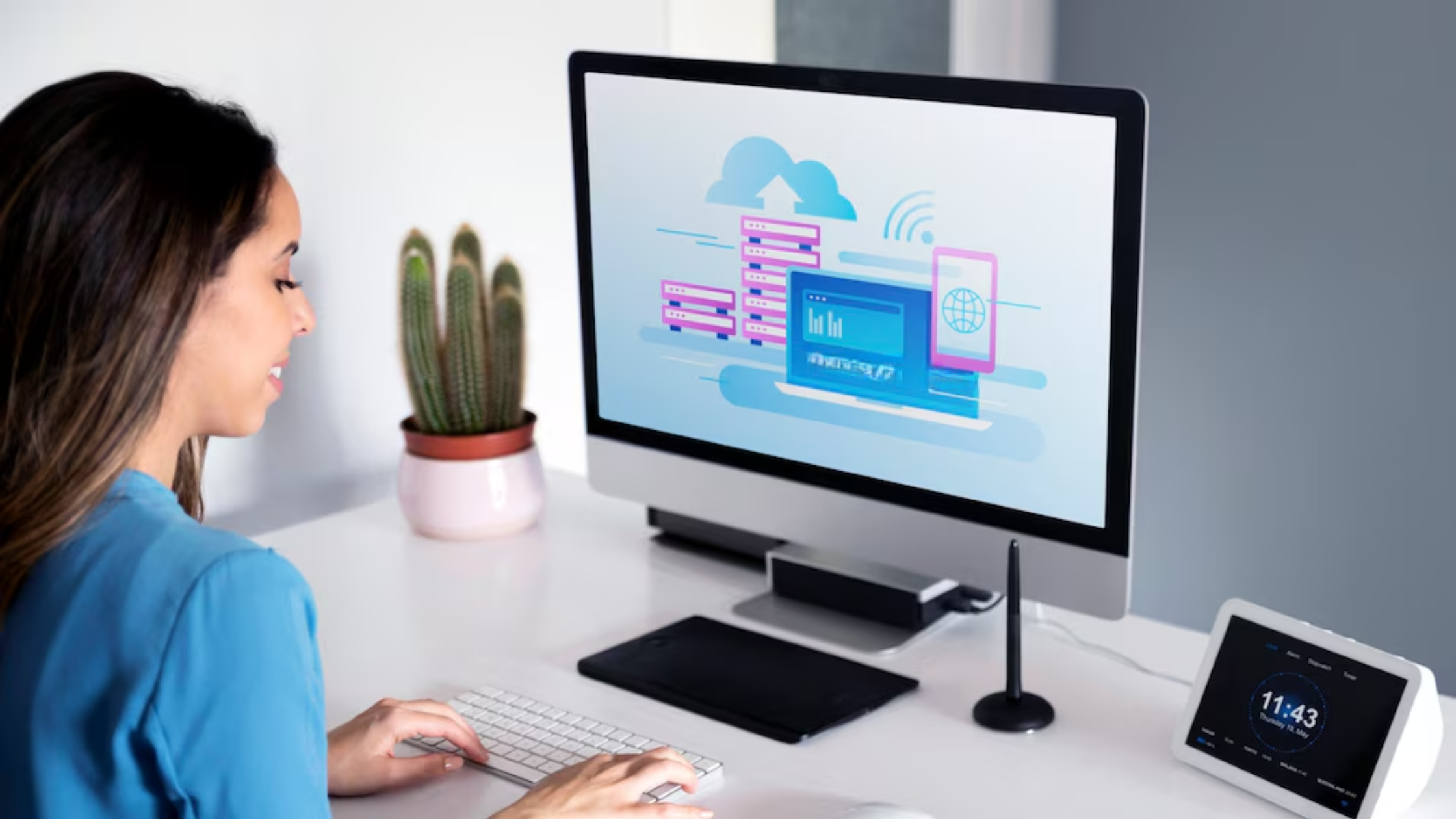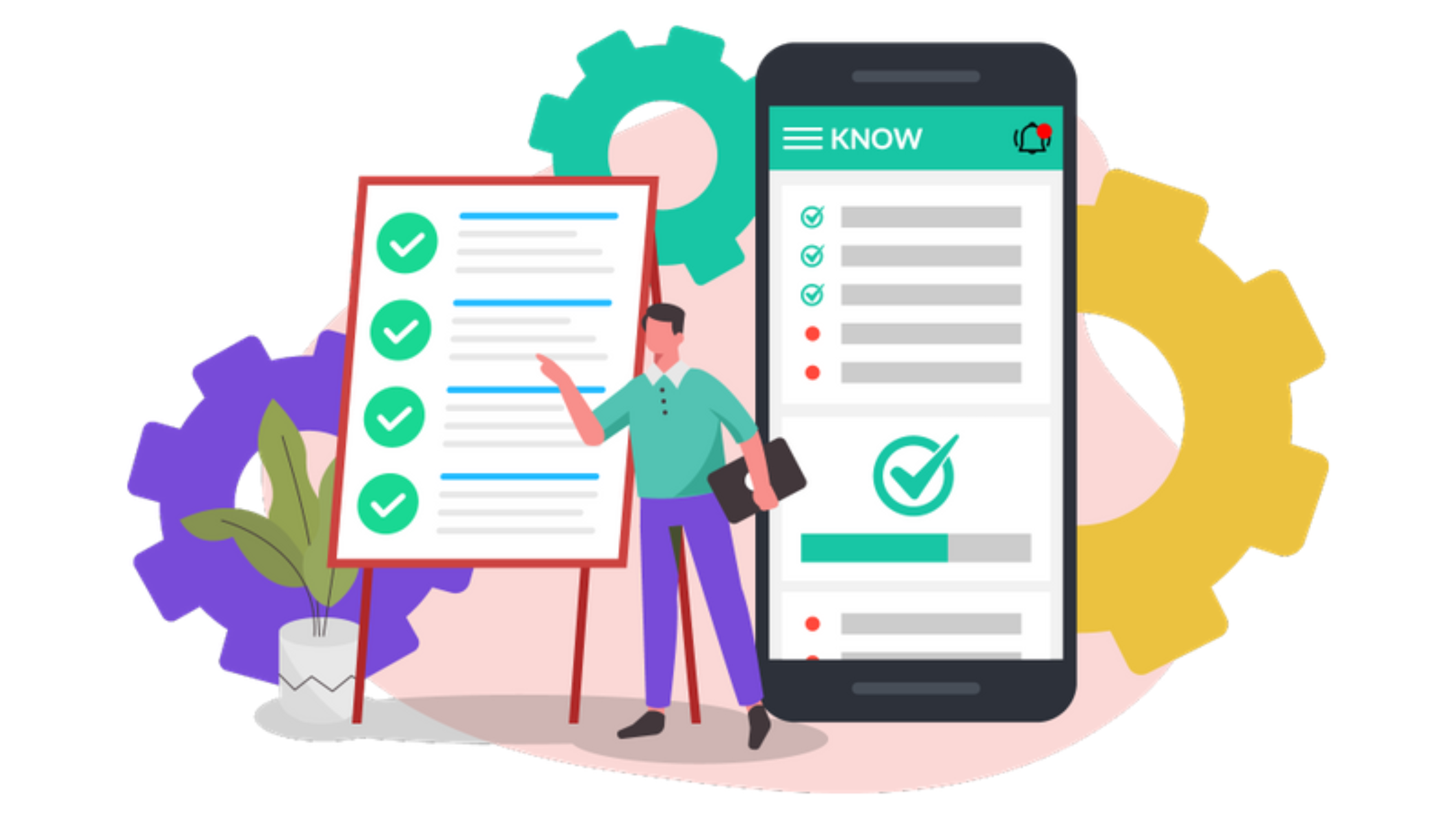Running a restaurant is no easy task. From managing tight profit margins to juggling vendor payments, staff wages, and inventory costs, financial clarity can make or break your business. That’s where restaurant-specific accounting software comes in.
In this guide, we’ll explore the top restaurant accounting software platforms, what features to prioritize, how to choose the right one for your operation, and how tools like the KNOW app can support seamless integration between your financial and operational data.

Why Restaurants Need Purpose-Built Accounting Software
Generic accounting tools often fall short when applied to the restaurant business. Why? Because restaurants operate in a uniquely fast-paced, high-variance environment where cash flow changes by the hour, not just by the month. A purpose-built restaurant accounting platform isn’t just helpful, it’s essential.
Here are the specific financial challenges restaurants face:
- Fluctuating inventory with short shelf lives
Ingredient costs fluctuate weekly. Spoilage, over-ordering, or improper portioning can silently erode your margins without real-time oversight. - Labor-heavy scheduling across shifts, overtime, and part-time hours
Most restaurants run on complex staffing models, mixing full-time, part-time, and hourly employees across lunch, dinner, weekends, and holidays. Managing payroll, overtime compliance, and tip distribution requires precision. - Tight margins and heavy cash flow variability
Restaurants often operate with net margins of just 3–5%. Delayed reporting or missed expenses can mean the difference between profit and loss in a given week. - Frequent cash and tip handling
Unlike many retail businesses, restaurants regularly deal with cash and tips, which need to be accurately tracked, reported, and taxed, especially for tipped employees. - Operational complexity across locations
Multi-location brands must consolidate financials, compare outlet performance, and maintain consistent reporting, even as each location operates independently. - Strict compliance requirements
From labor laws (like FLSA and local wage rules) to food safety audits and tax obligations, accounting software needs to simplify compliance, not add to the burden.
Restaurant-focused accounting software is designed with these realities in mind. It reduces manual work, gives real-time visibility, and helps operators make better decisions, faster. At a minimum, the best platforms offer:
✅ Real-time cost and cash flow insights
✅ Automated payroll and tip calculations
✅ Accurate inventory and recipe-level costing
✅ POS and scheduling system integrations
✅ Audit-ready reports for tax and compliance
✅ Cloud access and mobile-friendly tools for owners on the move

Key Features to Look For in Restaurant Accounting Software
Not all accounting tools are built for the rhythm of restaurant operations. Whether you’re managing a high-end fine-dining establishment, a drive-thru QSR, or a growing franchise, these features are non-negotiable:
| Feature | Why It Matters |
|---|---|
| Inventory & Recipe Costing | Automatically calculates food costs per dish, monitors ingredient usage, and flags over-portioning or wastage, critical for menu profitability. |
| Payroll Integration | Handles complex schedules, split shifts, tip pooling, and overtime with ease, ensuring wage accuracy and labor law compliance. |
| Sales & Profit Reporting | Breaks down performance by daypart, menu category, or location, empowering managers to adjust pricing, staffing, or promotions in real time. |
| Multi-location Support | Provides centralized financial control while allowing outlet-level visibility, ideal for franchise models or multi-unit groups. |
| POS Integration | Pulls in daily sales, refunds, taxes, and payment method data automatically, reducing reconciliation errors and manual data entry. |
| Cloud-Based Access | Allows owners, bookkeepers, and accountants to access financials anytime, anywhere, especially useful for remote reviews and approvals. |
Optional but valuable features include:
- Vendor payment tracking to stay on top of supplier invoices
- Mobile apps for quick expense logging and receipt scanning
- Budget forecasting tools to anticipate seasonal swings or staffing needs
- Custom dashboards tailored for owners, GMs, or finance teams
When these features are aligned with your restaurant’s size, structure, and tools (like POS and scheduling systems), you gain more than just accounting; you gain control.
Overview of Best Restaurant Accounting Software in 2025
Let’s take a closer look at some of the best accounting software for restaurants, covering both small establishments and enterprise-grade solutions.
1. QuickBooks Online
A trusted name in small business finance, QuickBooks offers robust accounting tools with broad integration capabilities, including POS and payroll.
Best For: Independent restaurants and small chains
- Key Features:
- Inventory management
- Payroll integration
- Sales tracking
- Customizable financial reports
- Pricing: Starts at $30/month
- Integrations: Compatible with restaurant POS systems, known to be a great payroll software for restaurants, as well as manages bank feeds for seamless financial management.
2. Restaurant365 Accounting Software
Built specifically for the food service industry, Restaurant365 merges accounting with restaurant ops.
Best For: Multi-location restaurants or enterprise-level operations
- Key Features:
- Tools to manage recipes and food costs
- Vendor management and accounts payable tracking
- Payroll processing and labor management
- Pricing: Custom pricing based on features
- Integrations: Integrates with POS systems, payroll software for restaurants, and inventory management tools specific to the restaurant industry.
3. Xero Accounting Software
A powerful cloud-based accounting tool with a clean interface and excellent third-party support.
Best For: Restaurants looking for flexible, scalable cloud software
- Key Features:
- Automated invoicing, billing and other accounting tasks
- Multi-currency capabilities for international restaurants
- Real-time cash flow tracking
- Pricing: Starts at $13/month
- Integrations: POS systems, payroll apps, and over 800 third-party integrations for restaurant-specific needs.
4. FreshBooks Accounting Software
FreshBooks is ideal for small restaurant owners who want simplicity without sacrificing power.
Best For: Small or single-location restaurants
- Key Features:
- Simple invoicing and billing
- Time tracking for payroll
- Expense management
- Pricing: Starts at $15/month
- Integrations: Integrates with popular restaurant apps, including POS systems, inventory tracking, and payment gateways.
5. Zoho Books Accounting Software
Part of the broader Zoho suite, this software balances affordability with powerful accounting features.
Best For: Tech-savvy restaurants using Zoho or looking for all-in-one operations
- Key Features:
- Multi-location restaurant support
- Real-time inventory management
- Payroll and tax management
- Pricing: Starts at $20/month
- Integrations: Works with payment gateways, POS systems, and payroll software to simplify restaurant finances.
6. Wave Accounting Software Solutions
Wave offers free accounting tools for restaurants just getting started or watching their budget.
Best For: New restaurants or owner-operated eateries
- Key Features:
- Free invoicing and expense tracking
- Simple payroll processing
- Multi-currency support
- Pricing: Free (additional charges for payroll services)
- Integrations: Integrates with POS systems, bank feeds, and invoicing apps for streamlined financial management.
7. Sage Business Cloud-Based Accounting Software
Known for its robust capabilities and scalable approach, Sage supports growing restaurant businesses.
Best For: Mid-sized chains and scaling restaurant brands
- Key Features:
- Manage inventory and business operations
- Automated bank reconciliations
- Financial reporting and analytics
- Access from multiple locations
- Pricing: Starts at $10/month
- Integrations: POS systems, payroll services, and third-party restaurant tools.

How to Choose the Right Restaurant Accounting Software
The best accounting software for your restaurant depends on more than just features; it should fit how your business actually runs. That means thinking about your size, staff model, tech ecosystem, and even the skill levels of your team.
Here’s what to evaluate before making a decision:
| Consideration | What to Evaluate |
|---|---|
| Size & Complexity | Are you a single-location business, a multi-unit franchise, or something in between? Large chains often need multi-entity reporting, location-level tracking, and advanced permission controls. Smaller venues may prioritize simplicity and cost. |
| Budget | Pricing models vary. Do you want a flat one-time license, a monthly subscription, or a freemium tier with limited features? Consider the total cost of ownership, including add-ons for payroll, support, or integrations. |
| Integrations | Your accounting tool should connect seamlessly with your POS system, inventory software, scheduling platform, and payroll processor. Disconnected systems lead to data errors and extra work. |
| User-Friendliness | Can your team actually use it? Complex tools with steep learning curves may slow down your workflow. Look for intuitive interfaces, onboarding support, and mobile-friendly options if you’re often on the move. |
| Support & Security | Will you get live support when something goes wrong? Is your financial data protected with cloud encryption, backups, and user-based access controls? Choose vendors that prioritize security and offer responsive customer service. |
Pro Tip: Don’t just rely on product demos. Ask for use cases from other restaurants of your size and model, or trial the software with real data from your business.
Cost and Value: Investing in The Best Restaurant Accounting Software
Restaurant accounting software isn’t just an expense; it’s a strategic investment. While some of the best small restaurant accounting systems may come with upfront costs, and others designed for larger chains may involve subscriptions or recurring fees, the right tool pays for itself by improving how you manage money, labor, and compliance.
Here’s how it delivers value over time:
- Increased Efficiency: Automating tasks like payroll, invoicing, and reconciliations reduces manual work, speeds up processes, and cuts down on costly errors.
- Smarter Decision-Making: With real-time dashboards and performance tracking, you gain immediate visibility into your cash flow, costs, and profit margins, helping you make proactive, data-driven decisions.
- Stronger Compliance: Built-in tax and payroll features help you stay aligned with evolving labor laws and regulatory requirements, minimizing your risk of penalties or audits.
Bottom line: Great accounting software doesn’t just record what you’ve done, it helps you run a tighter, more profitable operation from the back office to the front of house.
What About Operational Data? That’s Where KNOW Comes In

Accounting platforms are excellent at tracking what has happened, like sales, costs, payroll, and invoices. But they often miss the operational inputs that cause those financial outcomes. That’s where KNOW fills the gap.
KNOW is a mobile-first operations platform built specifically for restaurant teams. It digitizes your frontline workflows, such as scheduling, attendance, inventory checks, waste tracking, and compliance audits, so you get structured, real-time data directly from your staff’s daily activities.
Here’s how KNOW complements your accounting software:
| KNOW Feature | Operational Benefit | Accounting Impact |
|---|---|---|
| Smart Scheduling | Automates shift planning, reduces overtime, and improves labor coverage | Aligns labor hours and costs with payroll systems, preventing wage overruns |
| Attendance Tracking | GPS check-ins, selfie validation, and real-time logs | Creates accurate time records for payroll and compliance audits |
| Digital Task Logs | Tracks prep, cleaning, inventory, and spoilage across shifts | Helps reconcile COGS and operational variances in your accounting reports |
| Issue Reporting | Captures equipment failures, delayed deliveries, or staffing shortages | Flags operational disruptions that impact revenue or increase costs |
| Custom Checklists & Forms | Digitizes temp logs, opening/closing procedures, and compliance checks | Replaces paper records with timestamped, audit-ready documentation |
Without real-time operational data, accounting reports can show what went wrong, but not why. KNOW connects the dots by turning daily routines into structured insights that feed your financial workflow.
📈 Better data → Better decisions → Better margins.
Want to Make Your Accounting More Actionable?
KNOW doesn’t replace your accounting platform; it supercharges it with real-world, frontline data.
See how it integrates seamlessly with your financial systems.
Book a Free Demo
FAQs
1. What is restaurant accounting software, and how is it different from general accounting tools?
Restaurant accounting software is designed specifically for the restaurant industry, with features tailored to the unique needs of restaurant owners and operators. Unlike general-purpose accounting software, it includes restaurant-specific tools like inventory management, recipe costing, POS system integration, and payroll for tipped employees. These platforms help streamline accounting tasks and provide deeper insights into cash flow, food costs, and labor efficiency.
2. Why should I choose cloud-based accounting software for my restaurant?
Cloud-based accounting software offers anytime, anywhere access to your financial data with just an internet connection. This flexibility is especially useful for restaurant operators managing multiple locations or working with off-site accountants. It also ensures real-time backups, seamless software updates, and easier integration with third-party applications like POS systems, payroll software, and project management tools.
3. What key features should I look for in accounting software for restaurants?
The best accounting software for restaurants typically includes the following features:
- Inventory management with expiration tracking
- Payroll software that supports tip reporting and shift differentials
- Expense tracking and accounts payable management
- POS and time tracking integrations
- Sales and cash flow reporting in real-time
- Support for financial reporting, tax prep, and automated accounts
These robust features help reduce manual data entry, lower the risk of human error, and empower data-driven decisions.
4. Can I use QuickBooks Online for my restaurant?
Yes. QuickBooks Online is one of the most popular accounting software solutions used by restaurants of all sizes. It supports expense tracking, bank reconciliation, sales tax management, and payroll processing. With POS and inventory integration capabilities, it’s a solid choice for small businesses and growing restaurant brands alike.
5. How does restaurant accounting software help with financial management?
Modern accounting systems automate and simplify your most critical financial management processes, like tracking daily sales, monitoring prime costs, and managing payroll across shifts. They also generate custom financial reports, giving restaurant owners visibility into performance across outlets, menu items, or labor categories.
With features like real-time dashboards and cost analysis, these tools transform your business operations by making finances easier to understand and manage.
6. Is restaurant accounting software suitable for both small and large businesses?
Absolutely. There are software options built for small businesses, food trucks, and sole proprietors, as well as advanced platforms that support medium-sized businesses, franchises, and large businesses with unlimited users. The right choice depends on your operational complexity, reporting needs, and budget.
7. How does restaurant accounting software improve efficiency?
By automating routine accounting tasks like running payroll, generating sales reports, and syncing bank transactions, restaurant accounting tools eliminate time-consuming manual processes. This not only increases team productivity but also reduces risk during tax time or audits. Some platforms also offer tools for digital invoice management and vendor payments, helping optimize your business processes from the back office.
8. Can restaurant accounting software integrate with my existing systems?
Yes. Most leading solutions support integration capabilities with POS systems, scheduling platforms, inventory software, and third-party apps for reporting and analytics. Integration is essential to ensure that your accounting methods align with operational data, especially when managing multiple restaurant locations or analyzing sales data at scale.
9. How does the KNOW app integrate with accounting tools?
KNOW doesn’t replace accounting software; it enhances it by feeding in operational data like scheduling, task completion, and attendance, which can be used for labor cost control and reporting.
10. Does the KNOW app offer customizable reporting features?
KNOW provides detailed operational insights that allow for customizable financial and performance reports when integrated with accounting software. These reports can be tailored to specific business needs, such as cost analysis by department or profitability by menu item.






![The 10 Best Restaurant Scheduling Software and Apps [2025] restaurant scheduling software](https://www.getknowapp.com/blog/wp-content/uploads/2024/09/restaurant-scheduling-software-360x240.png)







